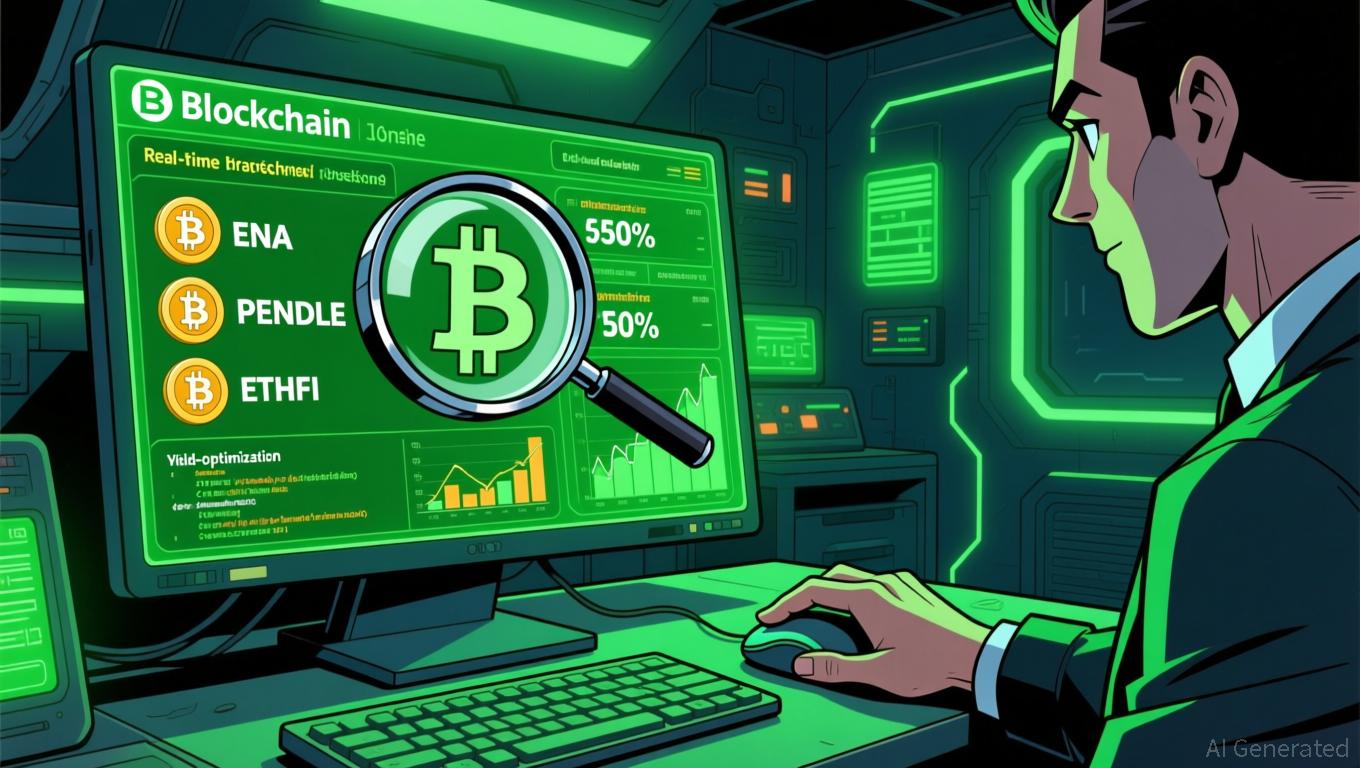The Growth of AI in Education: How Machine Intelligence is Transforming Educational Programs and Creating New Investment Prospects
- Universities like Farmingdale integrate AI into curricula, emphasizing ethics and workforce readiness. - The global AI education market, projected to reach $92.5B by 2033, drives demand for scalable, ethical solutions. - Investors target K-12, corporate training, and ESG-aligned AI tools, navigating rapid tech shifts and regulatory challenges.
Institutional Adaptation: From Curriculum to Capstone
Farmingdale State College stands as a model for how institutions are responding to the AI revolution. Its Bachelor of Science in Artificial Intelligence Management program, introduced in 2025,

AI is also being integrated into established academic fields. For example,
Workforce Readiness and Market Demand
The need for these educational changes is highlighted by current employment trends. Employers in industries from healthcare to finance are seeking talent capable of leveraging AI for analytics, automation, and informed decision-making.
Additionally,
Strategic Investment Opportunities
The rapid expansion of AI in education has drawn considerable attention from venture capitalists. In 2025,
Major areas for investment include:
1. K-12 and Corporate Training: These two segments lead the AI education industry,
2. Scalable Solutions: Investors are drawn to startups with models that can grow rapidly,
3. Ethical AI and ESG Alignment:
4. AI Agents and Deep Tech:
Risks and Considerations
Despite the vast opportunities, investors must be mindful of several challenges. The fast pace of technological change requires flexibility, and the crowded AI education market demands clear differentiation. Startups must also tackle issues like data security and ensure their products comply with changing regulations. For educational institutions,
Conclusion
The integration of AI into education marks a pivotal intersection of academic progress and market potential. Institutions like Farmingdale are reshaping their offerings to prepare students for an AI-focused world, while the market for AI educational tools presents strong returns for investors. Success in this arena depends on supporting scalable, ethical, and industry-targeted solutions. As AI continues to transform education, those institutions and investors that anticipate and adapt will drive the next era of innovation.
Disclaimer: The content of this article solely reflects the author's opinion and does not represent the platform in any capacity. This article is not intended to serve as a reference for making investment decisions.
You may also like
Hayes Focuses on High-Yield DeFi Initiatives Amid Growing Institutional Interest
- Arthur Hayes acquired 2.01M ENA , 218K PENDLE, and 33K ETHFI tokens via Cumberland, totaling $1.42M in DeFi projects focused on yield optimization and automated market-making. - The purchases highlight growing institutional interest in DeFi protocols offering structured products and tokenized derivatives, with ENA and PENDLE leading in governance and yield strategies. - Hayes's strategy aligns with leveraging on-chain data to target undervalued assets, potentially amplifying market sentiment but exposing

Bitcoin Updates: Major Institutions Propel Bitcoin Beyond $90K Amid Expanding ETF Investments
- Institutional investors drove Bitcoin above $90,000 in November 2025 through strategic ETF allocations, including Texas's $10M initiative and Harvard's $443M IBIT stake. - ETF flows showed $238M inflows into spot Bitcoin ETFs despite prior $3.5B outflows, reflecting maturing institutional diversification and crypto-friendly government frameworks. - Texas's planned self-custodied Bitcoin transition and Mubadala's tripled IBIT holdings highlighted growing acceptance of Bitcoin as a strategic reserve asset.

Solana News Update: CHOG Soars by $10M—Meme Coin Frenzy Faces Analyst Cautions Over Market Fluctuations
- CHOG, a Monad ecosystem meme coin, briefly hit $10M market cap on Nov 27, driven by $17.9M 24-hour trading volume. - Monad's mainnet launch (Nov 24) raised $269M via a 1.43x oversubscribed Coinbase ICO, attracting 85,000 participants. - Analysts warn meme coins like CHOG face volatility risks due to social media-driven hype and lack of fundamentals. - Meme coin market reached $47.1B in Q4 2025, with DOGE and SHIB leading despite emerging Solana/Monad projects gaining traction. - Institutional investors r

Vitalik Buterin Backs ZKsync, Igniting Fresh Hopes for Layer 2 Scaling
- ZKsync's Atlas upgrade (Oct 2025) achieved 15,000 TPS and $0.0001 per transfer costs via RISC-V-based zkVM, solving Ethereum's scalability limitations. - Vitalik Buterin's endorsement catalyzed institutional adoption, with Deutsche Bank and Sony leveraging ZKsync for cross-chain settlements and data privacy. - ZK token surged 50% post-endorsement, while ZKsync's TVL reached $3.5B by 2025 through EVM compatibility and liquidity interoperability breakthroughs. - Upcoming Fusaka upgrade (Dec 3, 2025) aims t
